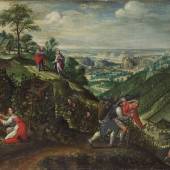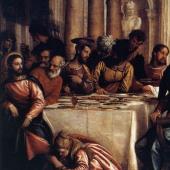Riches' Futility

July 31, 18th Sunday in Ordinary Time
Readings: Ecclesiastes 1:1, 2:21-23; Colossians 3:1-5, 9-11; Luke 12:13-21
We must become wealthy in God's priorities through self-denial, giving to the less fortunate, uplifting the downtrodden, and helping others build their lives
The Bible is ambiguous when it discusses wealth. On the one hand, wealth is considered to be God’s blessing. On the other hand, the rich are condemned. Jesus uses ‘treasure’ to refer to the Kingdom of God. But he is very hard on the rich.
In the gospel reading, an anonymous person in the crowd requests Jesus to be a middle person in his property settlement. Jesus doesn't do what the person wants him to do. However, he takes advantage of the opportunity to discuss wealth.
At its core, Jesus' exhortation consists of two elements: (a) one must get rid of greetings at all cost, and (b) riches do not give us life.
Through the parable of the rich man, Jesus drives home his point. The rich man in the parable is a hard worker and a strategic manager. He knows to cultivate his field so that it yields more excellent fruits. He wants to enlarge his granary.
Through a monologue, Luke presents what is happening in the rich man’s heart. The rich man raises a question and answers it: he would enlarge the granary, store the riches, and talk to his heart to enjoy and make merry.
The problem with a rich man is that he has become self-sufficient. Riches become a problem when they make a person self-sufficient. Self-sufficiency is a hurdle to discipleship. God's voice or warning echoes as the rich man thinks in his heart.
God shows the other side of life: (a) he will die, and (b) his riches will go to someone who has not earned them.
The evangelist concludes the parable by saying, "Thus will it be for all who store up treasure for themselves but are not rich in what matters to God."
In the first reading, the Preacher (Qoheleth) calls riches vanity, for a person who earns them with anxiety and hard work has to leave them for someone else who has not labored for them. The author calls this both vain and unjust.
In the second reading, Saint Paul invites the Corinthians to seek what is above. He encourages them to eliminate "immorality, impurity, passion, evil desire, and the greed that is idolatry." They are invited to put on their new selves.
The readings of the day give us the following life lessons:
- The inescapability of wealth. Wealth is indispensable for our life on earth. We can never do away with it. It is good if wealth remains our servant. Because if it becomes our master, we will lose control of our lives.
- Self-sufficiency is a bad thing. To a certain extent, we need to be self-sufficient. But this should never make us alienated from others. In the beginning, we held on to the riches. As time passes, fortunes begin to take hold of us.
- Effort. The Preacher calls ‘hard work" in vain. It becomes so when it makes us obsessed with riches or the outcome.
- Look for higher-level items. Saint Paul challenges us to lift our heads high to seek the things above.
- "No to greed." Greed makes us violent and indifferent.
Radio Veritas Asia (RVA), a media platform of the Catholic Church, aims to share Christ. RVA started in 1969 as a continental Catholic radio station to serve Asian countries in their respective local language, thus earning the tag “the Voice of Asian Christianity.” Responding to the emerging context, RVA embraced media platforms to connect with the global Asian audience via its 21 language websites and various social media platforms.














